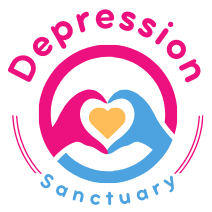- Beta-blockers and depression have long been thought to be linked.
- Many believe that this drug may cause depression as a side effect.
- However, newer, better quality research contradicts this idea.
- Experts say people may misinterpret other side effects or have depression for other reasons.
- However, if things just don’t feel right, it’s always a good idea to speak with a doctor.
For years, there’s been concern that taking beta-blockers—like metoprolol, propranolol, or atenolol—could increase the risk of depression.
These medications are commonly used to treat high blood pressure, irregular heartbeat, migraines, and anxiety.
Because some beta-blockers affect the brain as well as the heart, people have worried that they might also affect mood.
But is that concern backed by science?
What recent research says about beta-blockers and depression
A 2021 study published in Hypertension, a journal of the American Heart Association, offers some reassuring answers about beta-blockers and depression. Researchers led by Dr. Reinhold Riemer performed a systematic review and meta-analysis, which means they collected and reanalyzed data from hundreds of high-quality clinical trials involving beta-blockers.
In total, they examined 285 randomized, double-blind, placebo-controlled trials—the gold standard for medical research. These studies included data from over 53,000 participants who were being treated for various conditions. The researchers looked specifically for reports of psychiatric side effects like depression, anxiety, sleep disturbances, and fatigue.
The key takeaway from the study: Beta-blockers are not associated with a higher risk of depression. In fact, when all the data were pooled together, people taking beta-blockers did not experience depression any more often than those taking a placebo or another type of medication.
They did find that some beta-blockers—especially those that cross into the brain, like propranolol—might slightly increase the chances of sleep problems and unusual dreams. However, these side effects were not common, and the increase in risk was small. Importantly, there was no consistent link between beta-blockers and depression or any serious mental health issues.
The researchers also pointed out that earlier studies suggesting a link between beta-blockers and depression may have had flaws. For example, they often relied on people self-reporting symptoms without using strict diagnostic criteria, or they didn’t compare beta-blockers to other medications or placebos.
Why some sources say beta-blockers and depression are linked
Speaking about a 2018 study published in JAMA, which dealt with the prevalence of people using medications commonly reported to cause depression, CBS News medical contributor Dr. Tara Narula offered an explanation of the historical warnings that beta-blockers and depression are linked.
Noting the difficulty in proving the direction of causality when there is a link between a drug and depression, Narula said, “I]t could be that people had pre-existing depression. It could be the chronic conditions they’re taking the medications for, heart condition, cancer, other conditions could be what’s causing depression and not the drugs.”
The result? In the absence of certainty, doctors will warn that a particular medication may cause depression until better quality research comes along that says otherwise.
A 2021 study in The Journal of Clinical Psychiatry offers further insight. The authors explain that beta-blockers have been linked to increased risk for tiredness and unusual dreams in comparison to a placebo. They suggest that patients may misinterpret these side effects as depression.
Additionally, beta-blockers tend to be prescribed to patients with ischemic heart disease, which is itself associated with a greater risk for depression.
What to do if you feel depressed while on a beta-blocker
If you take beta-blockers or are considering starting one, recent research should offer some peace of mind. According to the authors of the 2021 study in Hypertension, most people can take beta-blockers without worrying about depression.
That said, it’s still important to watch for any new symptoms or mood changes—especially in the first weeks of treatment. If you notice something concerning, talk to your doctor. Fatigue or feeling “off” might be a side effect of the medication that will go away as your body adjusts to the medication, but if it doesn’t, it’s important to speak up.
In some cases, switching to a different beta-blocker or adjusting the dose may help resolve unwanted symptoms.
It’s also important to note that you should never abruptly stop taking a beta-blocker. You can develop rebound hypertension, according to Harvard Medical School. This can put you at risk of a heart attack or stroke. You should always seek out your doctor’s guidance to wean off the drug slowly. (Did you know that you should also wean off your antidepressant if you ever need to stop? Here’s how to wean off an antidepressant safely.)
Takeaway
For years, many believed beta-blockers and depression were closely linked—but new research tells a different story.
A 2021 review found no strong evidence that beta-blockers cause depression. While some may experience fatigue or vivid dreams, the data suggest beta-blockers and depression are not consistently connected.
Still, if mood changes occur, it’s wise to talk to your doctor. Adjustments can be made safely—but never stop beta-blockers without medical guidance due to the risk of rebound hypertension.
Image by Steve Buissinne from Pixabay
Nancy Schimelpfening is the founder of Depression Sanctuary. Unless otherwise stated, all of the content on Depression Sanctuary is written by and maintained by Nancy. Nancy has a master’s degree in community health education from Old Dominion University in Norfolk, VA. She was the About.com (now Verywell.com) expert on depression from 1998-2016. She has also written for other online publications, including Healthline, Healthgrades Professional, Health Digest, and MindBodyGreen.

